Nature Knows and Psionic Success
God provides
Best Nootropics (Smart Drugs) to Unlock Your True Brain
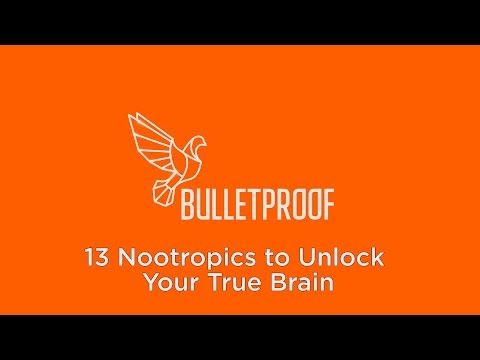
High DHA Omega-3 Fish Oil Burpless, 100% Soluble w/Astaxanthin & D3, 60 Softgels (30% off, save $11.99, Limited Time) 10 Easy Ways to Remove Skin Tags Naturally at Home Potassium Rich Foods Foods high in magnesium Foods High in Probiotics Magnesium sources Vitamin D rich food High Sodium Foods Good Sources Of Calcium Calcium & Magnesium Celery Health Benefits Home Remedies Health tips Homemade Food Recipes Health and wellness Natural Remedies Healthy Living Health And Beauty Clean Diet Natural Medicine Food Items Herbs Herbalism Natural Foods Healthy Life Medical Science Food Medicinal Plants Healthy Food Diet Food Celery leaves are high in vitamin A, the stems are an excellent source of vitamins 6 & C with rich supplies of potassium, folate, See more The internet is flooded with new and different types of drinks every day. While some promise to aid weight loss, a few others claim to provide some or the other health benefit(s). We are not saying that these drinks do not work as promised, but following the correct procedure for consuming them is also very important. 11 Simple Exercises That Anyone With Knee Pain Needs to Start Doing Do I have an MTHFR mutation? Here’s how to find out Gut health foods • HEALTH • FITNESS • Colon Health Health and Nutrition Health and wellness Health tips Holistic Nutrition Wellness Tips Leaky gut diet Medicine Vegetables Healthy Life Food Eat Healthy Natural Health Heartburn Health Health And Fitness Ovarian Cyst Miracle – Healthy digestive system comes from having good daily habits. Then you cant miss these 9 tips! – 1 Weird Trick Treats Root Cause Of Ovarian Cyst in Days – Guaranteed See more An all-star line up of some of the BEST symptomatic treatments out there! I will DEFINITELY be trying a few of these […]
Do your knees hurt? A scientific study shows black cumin seed oil reduces knee pain
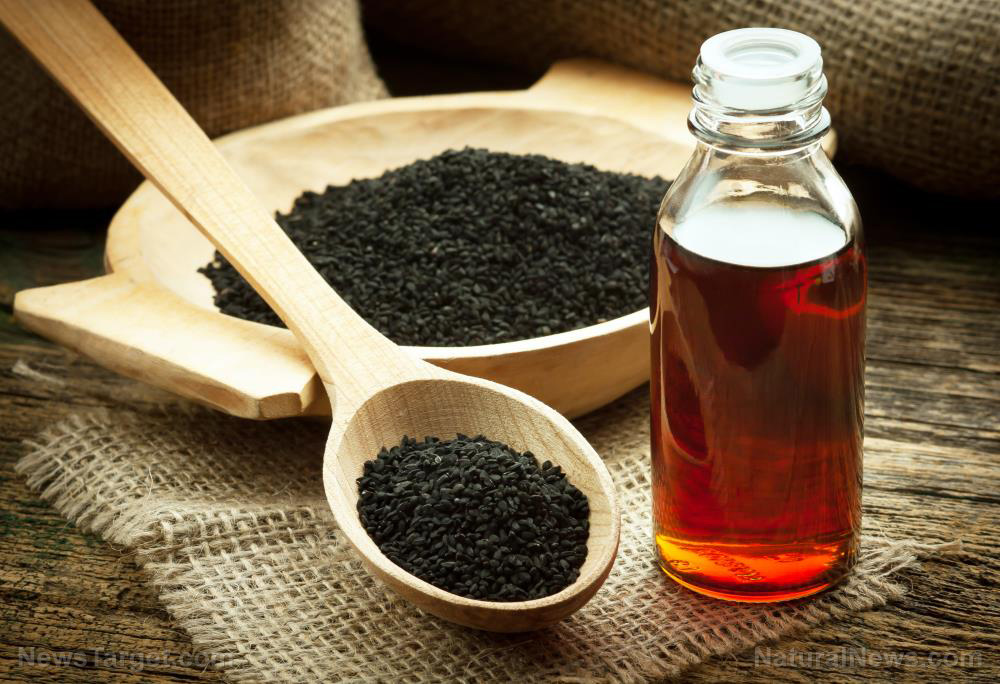
( Natural News ) Experiencing knee pain? Ditch harmful drug pain relievers and use natural pain relievers instead. A study published in the journal Complementary Therapies in Clinical Practice has found that black cumin oil is a safe and effective natural treatment for knee pain . In the study, researchers from Selçuk University and Eski?ehir Osmangazi University in Turkey assessed the analgesic effect of black cumin oil on older people living with knee pain. They recruited 60 participants experiencing knee pain for the study. The participants were randomly divided into two groups: the treatment group and the control group. Participants in the control group continued their routine prescription for knee pain, while the treatment group applied black cumin oil to their knees thrice a week for a period of one month. The researchers compared the severity of knee pain of the participants from the first day of the study to the 30 th day. Based on the results of the study, the application of black cumin oil on the knees significantly reduced the severity of pain of the treatment group. This led the researchers to conclude that black cumin oil possesses pain relieving properties that are effective in treating knee pain among the elderly. The many benefits of black cumin oil Black cumin oil, or black seed oil, is an oil extracted from the seeds of black cumin ( Nigella sativa) , a plant native to south and southwest Asia. (Related: Black cumin: The secret miracle heal-all remedy .) This oil offers many health benefits . Here are some of them: Boosts immunity: Black cumin oil is said to improve immune function. You can get this benefit by adding black cumin oil to curries and other dishes. Regulates cholesterol levels: Black cumin oil contains good fats that are efficient […]
Is social media addiction a new type of psychiatric condition?

( Natural News ) When people say that they’re “addicted” to Facebook or social media, is it the same thing as being addicted to drugs or alcohol ? According to estimates, the number of social media users around the world can skyrocket from almost a billion in 2010 to over three billion by 2021 . Out of all the social networking sites (SNS), Facebook is at the top of the list, with almost a whopping 2.2 billion active users monthly. It’s not just kids on Facebook, though. Even adults spend 50 percent more time on Facebook daily. But why is everyone drawn to social media? It can be that many people feel socially insecure. There’s even a term for that need you feel to constantly check your social media accounts: “FOMO,” or the “fear of missing out.” FOMO often motivates social media users to stay online and refresh their feeds so they don’t miss what everyone else is doing. Being able to like, share, and comment, on a friend’s posts gives most Facebook users the feeling that they’re interacting. However, this is only a poor equivalent of real-life interactions with a lot of filters to hide the not-so-appealing aspects of your life. (Related: Founder of Virtual Reality warns we should all DELETE all social media accounts to avoid “mass human behavioral engineering .”) Virtual interaction comes at a price, and it could be your gradual addiction to social media. Sean Parker, the founding president of Facebook, even admitted that this was the company’s goal from the beginning. Parker explained that Facebook’s earliest mission was to “consume as much of your time and conscious attention as possible…” Mother Nature’s micronutrient secret : Organic Broccoli Sprout Capsules now available, delivering 280mg of high-density nutrition, including the extraordinary "sulforaphane" and "glucosinolate" nutrients […]
One of the most widely used medicinal plants, java plum contains high amounts of antioxidants

( Natural News ) Researchers from Amity University and Helix BioGenesis have discovered the antibacterial, antioxidant, and neuroprotective properties of the stem of the java plum ( Syzygium cumini ). This study, which was published in the International Journal of Green Pharmacy , used different in vitro experiments to determine if the aforementioned properties were present in extracts from the java plum’s stem. Through this study, they were able to show that the use of java plum stem as a herbal remedy is backed by scientific proof . Existing studies show that the leaves, fruit, and roots of the java plum tree possess beneficial properties. These include anti-inflammatory, antioxidant, antibacterial, anti-fungal, and anti-HIV activities. In addition, it has also been observed that extracts from different parts of plants have different bioactive components. This leads to differences in the properties and activities that each part has, which is why it is important to separately determine bioactive components and properties for each part. For this study, stem samples were initially washed, dried, and then ground into a powder. This powder was dissolved in different solvents, including water, ethanol, and methanol, which were then used for the experiments. The antibacterial activity of the java plum extracts was tested using the agar well diffusion method. In this method, extracts were loaded into wells in the Luria Bertani (LB) agar plates where bacteria were grown. The antibacterial activity was then determined based on the inhibition length. For this experiment, two Gram-positive bacteria ( Bacillus amyloliquefaciens and Staphylococcus aureus ) and two Gram-negative bacteria ( E. coli and Pseudomonas aeruginosa ) were used. Results show that aqueous and alcoholic java plum stem extracts were efficient antibacterial agents against Gram-positive and Gram-negative bacteria. 100% organic essential oil sets now available for your home and personal care, […]
The scent of health and happiness: Why you should start smelling your coffee

( Natural News ) The benefits of drinking coffee are well-known and many. But what about smelling it? As it turns out, your daily cup of joe isn’t just good to drink: simply taking a whiff can be beneficial, too . Perk yourself up with a cup The scent of freshly brewed coffee is a truly soothing aroma. In fact, researchers from Seoul National University believe that this distinct smell may actually reduce your stress levels. To arrive at this conclusion, the research team exposed sleep-deprived, stressed-out rats to the aroma of coffee beans then analyzed their brain tissue. Additional analyses were also performed on stressed rats that hadn’t been exposed to the coffee bean smell. They discovered that the two groups expressed certain genes differently . Of the 13 select genes of the coffee group, 11 had higher expression levels and the other two were much lower. The researchers further noted that several of the expressed genes and proteins possess anti-stress or antioxidant functions. Although the study focused exclusively on stress brought on by the lack of sleep, it nonetheless shows that sniffing coffee can indeed help you out when you’ve had a sleepless night. Sure, coffee can give your relaxation levels a boost, but what about your brain? According to a relatively recent study , the scent of coffee is an excellent productivity enhancer. The researchers behind this study first recruited 114 undergraduate business students and tasked them with answering a 10-question algebra test. While one group took the exam in a normal room, the other was placed in a room that had an electric diffuser filling it with a coffee smell. Those in the latter room scored much higher than the participants who weren’t exposed to the scent. (Related: Drinking coffee can help protect healthy brain […]
More compelling evidence that omega-3s decrease the risk of heart disease
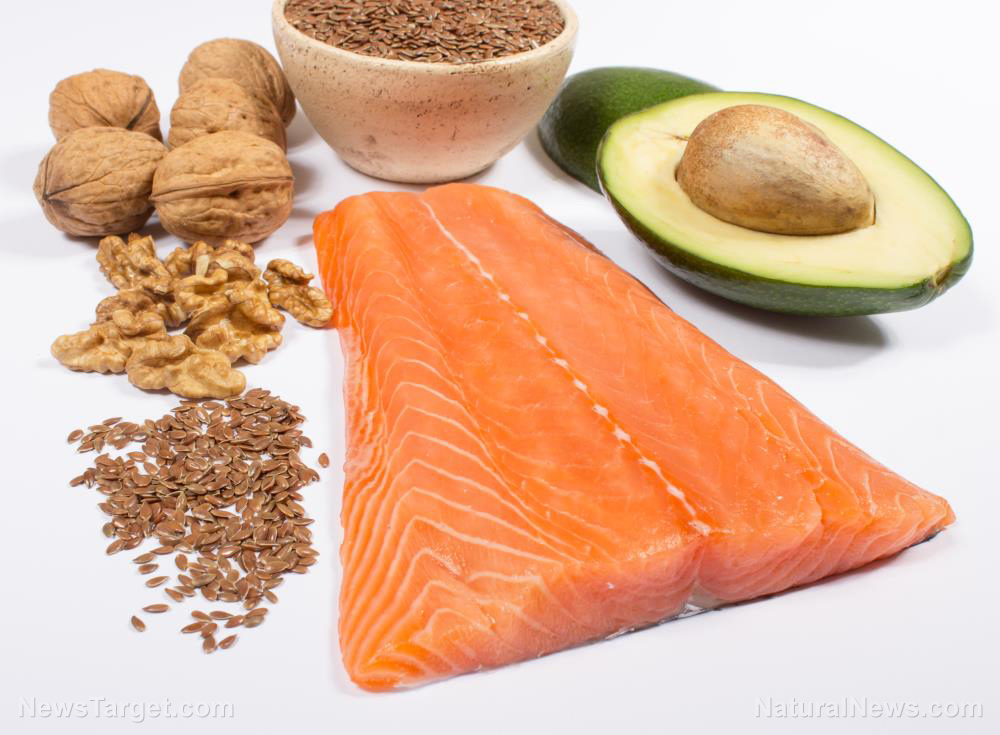
( Natural News ) Scientists continue to study omega-3s, and the health benefits of these fatty acids never seem to disappoint. Recent research has shown that regular consumption of omega-3s can help reduce your risk of heart disease. Past research has shown that people who consume fish are at a lower risk of having cardiovascular issues, but whether these protective benefits come from fish as a whole, or simply omega-3s, has been unclear — until now. A recent meta-analysis featuring over 900,000 participants provides strong evidence of the connection between omega-3 intake and the prevention of heart disease . Study leader Dr. Dominik D. Alexander, Principal Epidemiologist at the EpidStat Institute in Ann Arbor, Michigan, commented on the research and stated, “To our knowledge, this is the most comprehensive quantitative assessment of the relationship between EPA+DHA supplementation and intake and coronary heart disease risk to date.” Omega-3s and heart health There are three types of omega-3 fatty acids: Alphalinolenic acid (ALA), eicosapentaenoic acid (EPA), and docosahexaenoic acid (DHA). The focus of the research by Dr. Alexander and his team was EPA and DHA. Together, they selected 18 randomized, controlled trials involving 93,633 subjects and another 16 prospective cohort studies that included 732,061 people for review. In total, nearly 900,000 patients were studied in the team’s meta-analysis . In the randomized trials, a six-percent overall reduction in any coronary heart disease event was observed. The scientists define a coronary heart disease event as “fatal or nonfatal heart attack, sudden cardiac death and angina.” The reduction in risk was most significant in high-risk patients. For example, participants with high triglyceride levels who took the EPA and DHA supplement saw a 16-percent drop in heart disease risk compared to those who didn’t take the supplement. The power of the elements : Discover […]
Best Nootropic Supplements For Studying

In today’s cutthroat world, having an edge means a greater chance at succeeding and achieving your goals. Everyone wants to be better, be it stronger, faster or smarter, and we want it now. Taking nootropics is one way to maximize the time you spend studying, learning, memorizing and absorbing material. It’s like a cheat code that you can use to boost cognitive functions far beyond the normal range. You’ll need the best nootropics for studying when you need to pass an exam or get a certain GPA. While coffee and energy drinks can give you a mental refresh every now and then, natural nootropics are good for long-term results. Moreover, these brain supplements won’t have the notorious “crash” or side effects such as the jitters, increased anxiety and the like. Here’s a closer look at nootropics and how it can help you. What Is A Nootropic? Nootropics are sometimes referred to as brain boosters, smart pills, smart drugs or brain pills. A scientist named Cornelius Giurgea coined the words “nootropic” when he created the first ever smart drug called piracetam. In Greek terms, nootropic means “mind” and “bend”, from the words nous and trepein. Nootropics, in the broader sense, is anything that could improve cognitive functions. The mechanism of action is simple- the compounds work on the brain’s various neurotransmitters, including serotonin, acetylcholine, dopamine and glutamate to increase mental output and productivity. In effect, taking nootropic supplements produces benefits for one’s mood, stress resistance, attention, focus, memory and motivation. You’ll feel more alert and ready to take on tasks, such as studying and learning. Moreover, nootropics can help your brain function even under duress and various chemical and physical assault, i.e., barbiturates, anticholinergic, hypoxia and even electro-convulsive shocks. Brain efficacy gets better as its firing control mechanism in both […]
30 Days to a Smarter Brain (How to Rapidly Improve How You Think)
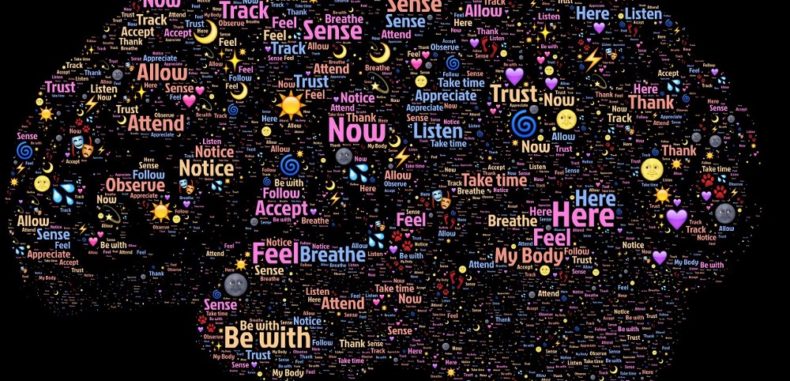
Everyone wants a better, and smarter brain to process information faster and have better memory recall. The most brilliant minds don’t have more brain power than the average person, they just use their brains more efficiently. Your brain’s health is a product of your daily habits. To optimize your brain, all you have to do is make slight adjustments to your routine. 30 days offer just enough time to realistically adopt new habits that can help you get smarter and think better, yet long enough to be challenging. In 30 days or less, you can adopt some of these habits to boost your brain power, improve your mental clarity and build a better brain. Exhaust your brain Challenge yourself with a whole new experience. Do more of what exhausts your brain. Your brain needs exhaustion to grow. Take up new, cognitively demanding activity — something new you’ve never done before: dancing, piano lessons, a foreign language — is more likely to boost brain processing speed, strengthen synapses, and expand or create functional networks. “When you’re learning something new, and your brain is feeling like it wants to take a nap, that’s when you know you’re doing things that are growing your brain neurologically, not just maintaining it,” says Dr. Jennifer Jones, a psychologist, and expert in the science of success. Every time you learn something, you create new connections, and the more connections you can maintain, the easier it will be to retain new information in the future. Stop feeding your comfort Comfort provides a state of mental security. When you’re comfortable and life is good, your brain can release chemicals like dopamine and serotonin, which lead to happy feelings. But in the long-term, comfort is bad for your brain. Without mental stimulation dendrites, connections between brain neurons that […]
Acupuncture found to be more effective than conventional treatments at reducing sensory, emotional, and motor damage

( Natural News ) Needles often conjure images of pain. When someone tells you he’s sitting on pins and needles, it means that person is so tense he can hardly relax. But Traditional Chinese Medicine looks at it another way. Practitioners of acupuncture, a technique using several needles to balance the flow of energy or chi in our body, welcome needles as the key to health. They believe energy flows through pathways in our body and putting acupuncture needles in these pathways help the body regain its lost balance. Yes, your body may feel sore after lying on the acupuncturist’s bed for quite some time, but a growing number of scientific evidence shows that the pain is worth it. Their health conditions improve. It comes as no surprise that in the U.S., the National Health Interview Survey covering health experts in the Texas Tech University Health Sciences Center , the University of Maryland School of Dentistry and the University of Maryland School of Medicine reports that the number of those who believe in acupuncture has risen over the past five years. More and more Americans are turning to this form alternative medicine for their aches and pains. A recent study shed more light on the role of acupuncture in helping victims of ischemic stroke , which occurs when a blood clot prevents blood from entering the brain following a clot that blocks the said organ’s blood vessels. Researchers experimented on 21 ischemic stroke patients from January 2011 to December 2013 by dividing them into two groups. Group A (11 patients) underwent acupuncture and conventional treatment . Group B (10) patients were confined to conventional treatment. Mother Nature’s micronutrient secret : Organic Broccoli Sprout Capsules now available, delivering 280mg of high-density nutrition, including the extraordinary "sulforaphane" and "glucosinolate" nutrients found […]
Kavanaugh accuser Christine Blasey Ford ran mass “hypnotic inductions” of psychiatric subjects as part of mind control research “creating artificial realities”

( Natural News ) (h/t to The Gateway Pundit for the initial lead). In another stunning bombshell about the hoax accusations against Brett Kavanaugh, we’ve now learned and confirmed that Christine Blasey Ford co-authored a science paper that involves her carrying out mass “hypnotic inductions” of psychiatric subjects as part of a mind control program that cites methods to “create artificial situations.” Internet sleuths are turning up an extraordinary collection of evidence that increasingly points to Christine Blasey Ford being involved in mind control programs at Stanford, which some claim are run by the CIA. We have confirmed that Stanford University, where Ford works, runs a “CIA undergraduate internship program” which is described in full at this Stanford.edu recruitment page for the CIA. The Stanford recruitment page for the CIA explains, “You will be given the opportunity to work with highly-skilled professionals and see first-hand the role the CIA plays in supporting US officials who make our country’s foreign policy.” We can also now confirm that Ford is listed as a co-author of a study that carried out mass hypnosis and mind control on psychiatric subjects under the banner of “psychoeducation,” covered in more detail below. A university professor named Margot Cleveland first tweeted the discovery, which is now spreading rapidly across the ‘net: BREAKING: This is HUGE (waiting for permission to h/t): One of Christine Ford Blasey’s research articles in 2008 included a study in which participants were TAUGHT SELF-HYPNOSIS & noted hypnosis is used to retrieve important memories "AND CREATE ARTIFICAL SITUATIONS." pic.twitter.com/11n1JVnArM — Margot Cleveland (@ProfMJCleveland) October 1, 2018 Christine Blasey Ford confirmed to be a co-author of the mind control study The study was published in the Journal of Clinical Psychology . The study title, abstract and authors can be confirmed at this link. Interestingly, […]
Jump-start your brain
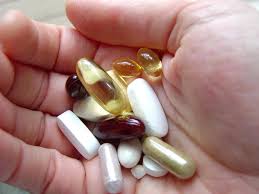
From pixnio.com The brain is a complex organ that requires various nutrients to operate efficiently. While there are a lot of factors necessary to keep the body running, it also helps to be familiar with the important ones that keep your brain running. Thiamin (B1) is necessary for brain function. Thiamin, and other B class vitamins are a group of water-soluble vitamins that help cells convert carbohydrates into energy for the brain and nervous system. Thiamin also helps with muscle contraction and conduction of nerve signals. When consuming thiamin, consider foods such as salmon, pork, flax seeds, navy beans, green peas, tofu, brown rice and asparagus. A healthy amount would be 1.2 mg per day. Folic acid (B9) is another B vitamin beneficial for the brain. B9, along with B6 and B12 can reduce levels of the amino acid Homocysteine, which has been linked to strokes, artery disease and dementia. While B9, along with B6 and B12 have not been shown to improve cognitive function, they can help with protecting against future diseases. Folic acid can be found in beans, citrus, leafy greens and rice. A daily dose for folic acid should be 400 micrograms per day for people 14 and up. However, women who are pregnant should consider 400-800 micrograms as the excess folic acid can help with the extra blood needed for pregnancy. Ascorbic Acid (Vitamin C) is a natural antioxidant molecule that exists within the brain. Vitamin C is beneficial for brain receptors, which are key to protect against Alzheimer’s, Parkinson’s and Huntington’s disease. Ascorbic acid is found in peppers, guava, kale and broccoli. The daily dose for Vitamin C is 90 mg. Given the fact that Vitamin C is also an antioxidant, you may also benefit from the effects of healthier skin and a robust […]
Global Nootropics Market To Reach Over USD 6 Bn By 2024
According to the latest report published by Credence Research, Inc. “ Nootropics Market – Growth, Future Prospects and Competitive Analysis, 2016-2024,” the global nootropics market was valued at USD 1,346.5 Mn in 2015, and is expected to reach USD 6,059.4 Mn by 2024, expanding at a CAGR of 17.9% from 2016 to 2024. The Nootropics market report provides separate complete analytics for the US, Canada, Japan, Europe, Asia-Pacific, and Rest of World. Annual estimates and forecasts are provided for the period 2018 through 2026. Market data and analytics are derived from primary and secondary research. Browse Here for Full Report with TOC: https://www.credenceresearch.com/report/nootropics-market Market Insights: Nootropics, also known as cognitive enhancers are drugs and natural extracts that improve cognitive functions such as memory, creativity, motivation in healthy individuals. Nootropics have been available in the market for several decades and were made of ingredients such as multivitamins and caffeine – substances that the FDA has approved as dietary supplements and classified as GRAS (generally regarded as safe). At present, these products are being repackaged, repurposed and sold to academic and professional overachievers to augment their brain function. Companies operating in this space primarily succeed as lifestyle brands through smart marketing. However they can only be recognized as healthcare brands only after they develop products that secure regulatory approval thus establishing certified efficacy and safety to their products. Among the key applications of nootropics, memory enhancement currently holds the largest revenue share and it is anticipated that the segment will maintain its lead through the forecast period 2016-2024. Major factors favoring the demand for memory enhancing nootropics include growing awareness among students and executives about the promised benefits of nootropics, easy accessibility, and the booming market for supplements. The memory enhancing nootropic drugs enhance learning and memory effect, enhance the ability […]
What really causes cognitive decline? Examining the top causes of memory loss and impaired brain health

( Natural News ) Is a decline in mental ability and cognitive function just a normal part of getting older? Medical advancements have resulted in an aging population and subsequently an increase in age-related mental health problems like Alzheimer’s disease and other forms of dementia. Though it is a commonly touted belief that this type of severe cognitive decline is an unavoidable part of getting older, several studies have proven conclusively that, in many cases, dementia can be prevented. Cognitive decline simply means that your brain no longer works as well as it once did. Some level of this type of decline is inevitable as we get older because neurons age and the rate at which the brain functions simply slows down. Nonetheless, as reported by Natural Health 365 , there are many things we can all do to dramatically reduce the rate at which this process takes place. (Related: Tea consumption declines cognitive decline in older adults .) Putting the brakes on cognitive decline There are several important ways in which the risk of cognitive decline can be reduced. Avoid oxidative stress The brain is particularly susceptible to oxidative stress which occurs when the body is unable to use antioxidants to counteract the effects of free radicals. Oxidative stress destroys neurons, damages DNA and interferes with the body’s ability to protect itself. Studies have found that Alzheimer’s patients generally have lower blood levels of antioxidants like glutathione. Dr. Donielle (Doni) Wilson, a naturopathic doctor, professional midwife, clinical nutritionist, bestselling author and researcher, explains : The power of the elements : Discover Colloidal Silver Mouthwash with quality, natural ingredients like Sangre de Drago sap, black walnut hulls, menthol crystals and more. Zero artificial sweeteners, colors or alcohol. Learn more at the Health Ranger Store and help support this news […]
Good for your health AND the planet: Why the Mediterranean diet is an environmentally-friendly option
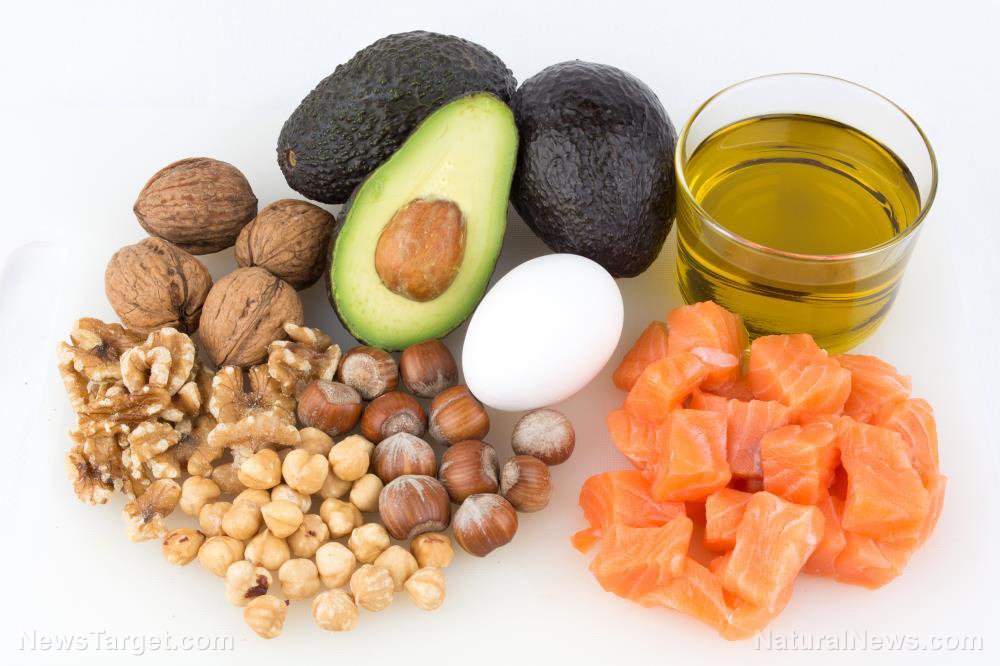
( Natural News ) If you are looking for a diet that’s not only delicious and easy to prepare but is also good for your health and the environment, the Mediterranean diet is the right one for you. Adherence to this type of diet is environmentally-friendly because it lowers environmental cost , according to a study published in the journal Public Health Nutrition . In the study, researchers from the University of Navarra in Spain and Loma Linda University in the U.S. analyzed the impact of adherence to the Mediterranean diet on land, water, energy use, and greenhouse gas emission. They evaluated the dietary patterns of more than 20,000 Spanish participants in the Seguimiento Universidad de Navarra (SUN) cohort. The participants completed a questionnaire regarding their food intake. The foods they consumed were classified on a scale as leaning more or less to a Mediterranean dietary pattern. Then, the researchers assessed the impact of each food item on water, land, energy use, and greenhouse gas emission. Based on the findings of the study, better adherence to the Mediterranean diet was linked to lower land use, water consumption, energy consumption, and greenhouse gas emission. The researchers concluded that the Mediterranean diet is an eco-friendly diet choice as it uses less land, water, and energy, and produces fewer greenhouse gases. Tips on starting to adhere to the Mediterranean diet Some people may think that the Mediterranean diet as an expensive kind of diet. The truth is that you do not have to buy or import expensive food items like artichokes or salmon, just eat those that are in season and locally available . If trying to adhere to the Mediterranean style overwhelms you, here are seven tips to help you start : The power of the elements : Discover Colloidal Silver […]
What To Eat To Improve Your Memory
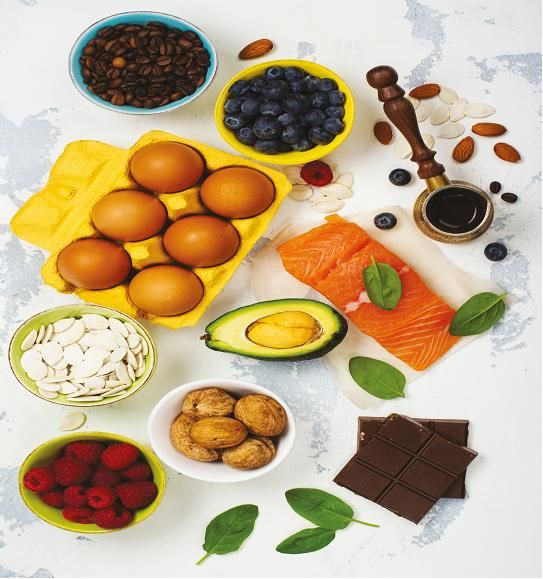
Fill your plate with these brain-boosting bites to protect your memory now and into old age Have you ever walked into a room and wondered how you got there? Or tried desperately to remember a person’s name? We all want to stay sharp as we age, especially as the likelihood of developing memory problems such as Alzheimer’s disease increases with age. Genetics plays a role in how good memory is but DNA is not the only factor – what we eat, our lifestyle and daily habits can all shape the risk of having memory problems in the future. It’s not just what we do in our later years that counts – we can make a difference with the right habits at any age. “Eating a diet high in processed, sugary foods and refined carbohydrates may be linked to the development of memory problems,” says Dr Marilyn Glenville, author of Natural Solutions for Dementia & Alzheimer’s and expert in nutritional health for women ( marilynglenville.com ). “More specifically, high blood sugar levels, as a result of eating these foods, has been found to increase our risk of cognitive impairment. This is not only among the older generation, but also in young people. Instead, eating whole foods including vegetables, whole grains, beans, fish, good quality lean meat, eggs and fruit (whole fruit rather than juice) can benefit all areas of your health, not just your memory!” 5 foods worth remembering Combat memory loss with these nutritional bites Berries Easy to snack on, berries can be a wonderful brain booster. “Blueberries may improve learning and memory due to the high levels of polyphenols, in particular anthyocyanins,” explains nutritionist Cassandra Barns. “These powerful compounds are thought to protect against oxidative stress and inflammation in the brain. In one study it was indicated that […]
How Brain Supplements Support Your Memory, Cognition, and Focus
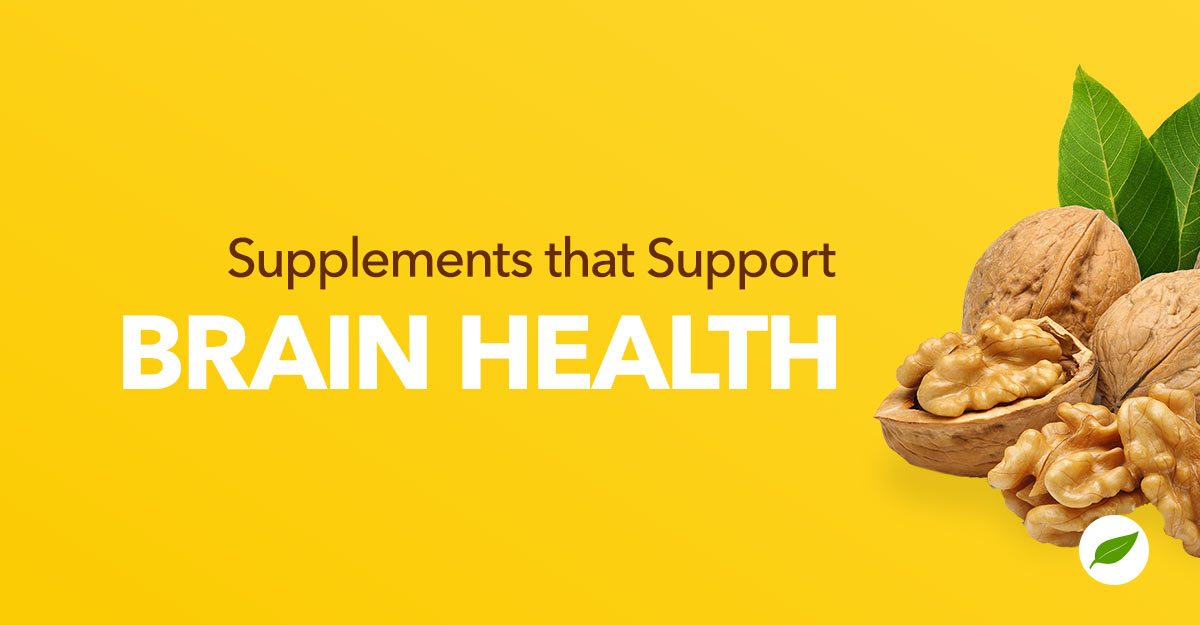
Send to Kindle We all want a more powerful brain, right? But is it possible to use supplements to boost cognition? There are a variety of opinions on the subject and about a billion products which promise big results. So what to believe? What’s the deal with brain supplements? The Deal With Brain Supplements There are three schools of thought when it comes to brain supplementation: the natural wing, the drug wing, and the alternative brain supplements wing. We’ll talk about the pros and cons of each so that you can make an informed decision. The Natural Wing: There are many studies out there that establish natural activities like sleep are about as good for brain health as anything. People in this camp often seek not so much to boost brain function, but to maximize the potential that’s already there. If this strategy works for you, you might abstain from drugs and alcohol, try to get good sleep, exercise, and eat a balanced whole foods diet. It’s thought that this is the best possible foundation for brain health and function, but is it possible to improve on this with the aid of brain supplements? The Pharmaceutical Wing: You may know that certain stimulant drugs are prescribed to millions, most of the time to boost cognitive function. However, many people worry that these drugs are over-prescribed. What is a user of supplements to make of this? Studies suggest that there is a potential benefit for young patients who have cognitive development issues, compared to young patients who do not receive this therapy. For these kids, the therapy has a big potential benefit , but among other populations may have negative side effects . Research seems to suggest that these methods have their place, but that for many, other methods may […]
One of the most esteemed herbs in the culinary world, rosemary is also a powerhouse in traditional medicine

( Natural News ) Previous studies have shown that rosemary ( Rosmarinus officinalis ) has many different therapeutic applications. These studies were collated by researchers from Pars Bioscience Research Center and University of Kansas-City Missouri to create a meta-analysis that would evaluate the preservative and therapeutic potential of rosemary . Relevant studies were collected from different public databases, using the search words “ Rosmarinus officinalis ,” “ R. officinalis ,” and “rosemary.” From this, they were able to gather over 80 articles that were then reviewed, summarized, and organized based on their topics. The researchers were able to recognize eight major properties of rosemary . These are antioxidant, antimicrobial, anticancer, anti-diabetic, antidepressant, neuroprotective, anti-inflammatory, and anti-obesity activities. Among the many properties of rosemary, its antioxidant activity remains to be the most well studied and well documented. Previous studies have shown that certain compounds are present in rosemary that can be attributed for antioxidant activity . These include phenolic compounds, such as carnosic acid, carnosol, and rosemarinic acid. Compounds found in rosemary utilize several pathways to achieve the antioxidant effect. Some work by scavenging free radicals, while others work by preventing lipid peroxidation, or increasing antioxidant activity of enzymes in the body. These mechanisms protect the body from oxidative stress that can lead to other diseases. This is why the antioxidant activity of rosemary is fundamental to its other therapeutic applications. Rosemary also exhibits antimicrobial activity against fungi and bacteria. Similar to antioxidant effect, the antimicrobial activity of rosemary is also dependent on the compounds that it contains. These include camphor, camphene, and borneol. Previous studies have also shown that rosemary can inhibit bacterial drug resistance by increasing the permeability of the bacterial membrane. The potent antimicrobial activity of rosemary makes it a promising substitute for artificial preservatives. Another property […]
Overhaul your life with our (unofficial) beginner’s guide to biohacking

The concept of merely existing is about as out of fashion as the mullet or a pair of crocs. To live your best life now, it’s all about becoming a harder, better, faster, stronger, 2.0 version of yourself. The term ‘biohacking’ embodies an entire spectrum of ways in which people modify, upgrade or enhance their bodies, from mood improvement and memory to physical appearance and optimum health. While it may sound a little scary (and sometimes it is) realistically, if you’ve ever exercised, popped a supplement pill, downed a coffee or partaken in a spot of meditation, you’ve biohacked. So if you’re looking for a complete system overhaul or just a decent night’s sleep, here is our beginner’s guide to biohacking for a step in the right direction. Sleep The attainable: When obtaining eight hours of shut-eye feels like nothing more than a cruel, elusive myth, invest in some blackout curtains, switch all mobile devices off at least an hour before boarding the slumber train and try to retire before 11pm. (Anytime after this the body creates a cortisol surge which keeps you awake.) Alternatively, try the SleepCycle app to help track your sleep patterns. The app wakes you up during your lightest phase of sleep so that you feel ready to take on the world, as opposed to hurling your alarm out of the nearest window. The extreme: Employ the help of Circadia , the ‘comfortable’ portable medical device that stimulates the brain region responsible for healthy sleep. Simply place Circadia’s two electrodes onto either side of your head, pop on your futuristic light blocking glasses and project some sleeping frequency binaural beats into your eardrums via the sound-blocking headphones. Simultaneously, wave goodbye to any form of after-dark coitus. Fitness The attainable: We’re all aware that exercise is […]
Eat more mushrooms for a healthier brain

( Natural News ) Every year, more people suffer from Alzheimer’s disease and other forms of dementia – it is estimated that sufferers will reach 42 million by the year 2020. In a study published in the Journal of Medicinal Food , Malaysian researchers suggest that edible and medicinal mushrooms can be used to nourish the brain and halt the progress of neurodegenerative diseases. It’s hard to believe that until around the year 1800, life expectancy in Europe was only between 30 and 40 years of age. It wasn’t too different in other parts of the globe either. Better knowledge on human health has nearly tripled this figure – American men currently have a life expectancy of 78.7 years , several notches lower than that for American women, which is 81 years. But this rise in lifespan also means that more people are now suffering from diseases common only to elderly people. Dementia and its most common form, Alzheimer’s disease (AD), has a high risk of affecting anyone older than 60 years old. The World Health Organization (WHO) estimates that 10 million new cases of dementia are recorded every year. As with most health conditions today, there are chemical medications specially formulated to slow down the progress of AD and dementia. However, they tend to have short-lived benefits and their side effects alone could fill an entirely new article. Therefore, scientists are always on the lookout for natural options to impede the development of neurodegenerative disorders. Mushrooms have been used by humans as a source of nutrition and medicinal compounds for a long time. Researchers from the University of Malaya , Kuala Lumpur now suggest that edible fungi may also be the key to mitigating the likes of dementia . The power of the elements : Discover Colloidal Silver […]
When are simple handmade computer programs more effective than AI?
Since we don’t have AI yet we can only speculate to this answer. Now if you mean ML, that is a very different thing as machine learning is simple feature recognition of some given input data. It can be pretty damn good at what it does, and you can even hook a few different ML data structures together with something like a Monte Carlo algorithm to play things like chess, go, or shogi. This makes it very good at playing those games and we even found that not letting it learn from humans but instead simply by playing itself turns out to produce even better output ( AlphaZero ), but this is still ML. When it can watch humans play a game and learn the rules or read the rules and play the game by itself, we are probably getting near what we would call a special AI. When it can then apply what it learns from one game to another, or to dealing with a human, or how to pick a good stock, and mix everything it learns into applying it with everything else (like a human brain can) then we will have general AI. My own research in the field is using computational biology to create an artificial brain using artificial neurons. Not the simple models used in most ML but fully spiking models where current is applied to soma of each neuron as a form of input which applies current through the synapses to connected neurons if it spikes. In this manner, myself and my colleagues that are doing the same research, are trying to build a computational model of a human brain, not a model of simple neuron connectivity. In this case we would have a human capable brain running in a computer. It should […]
